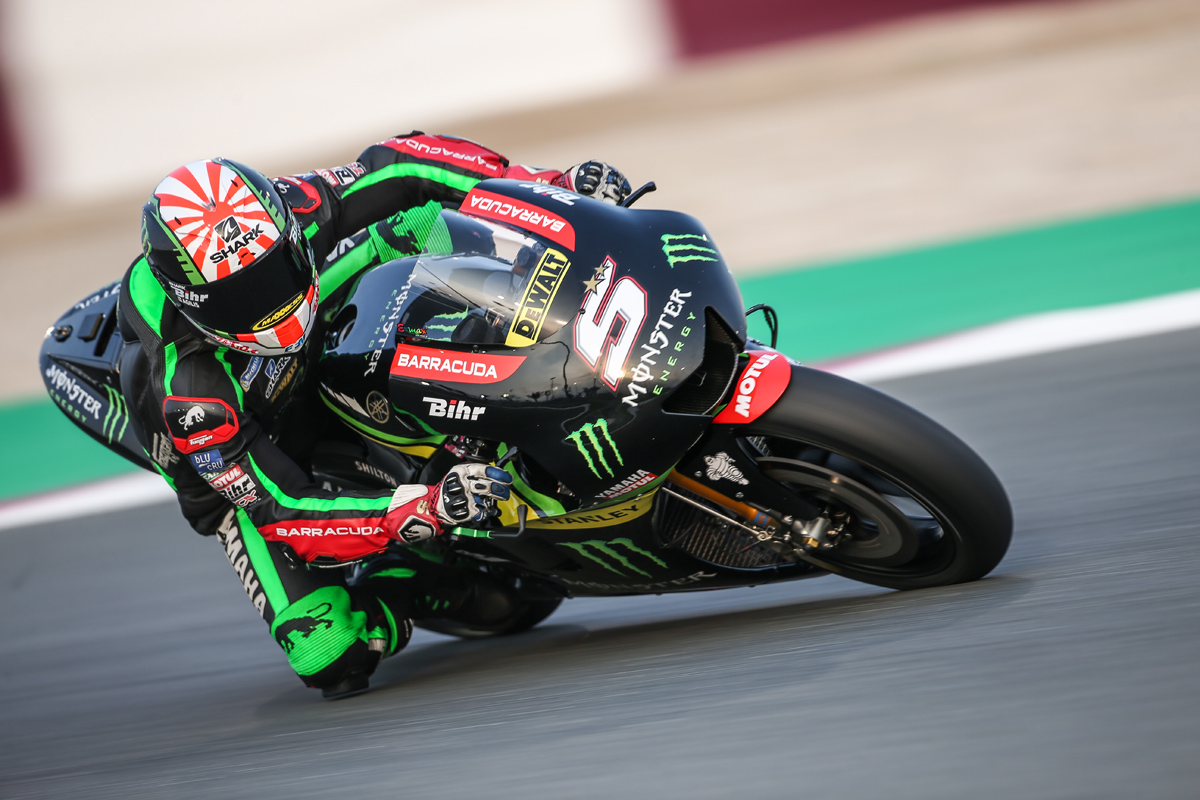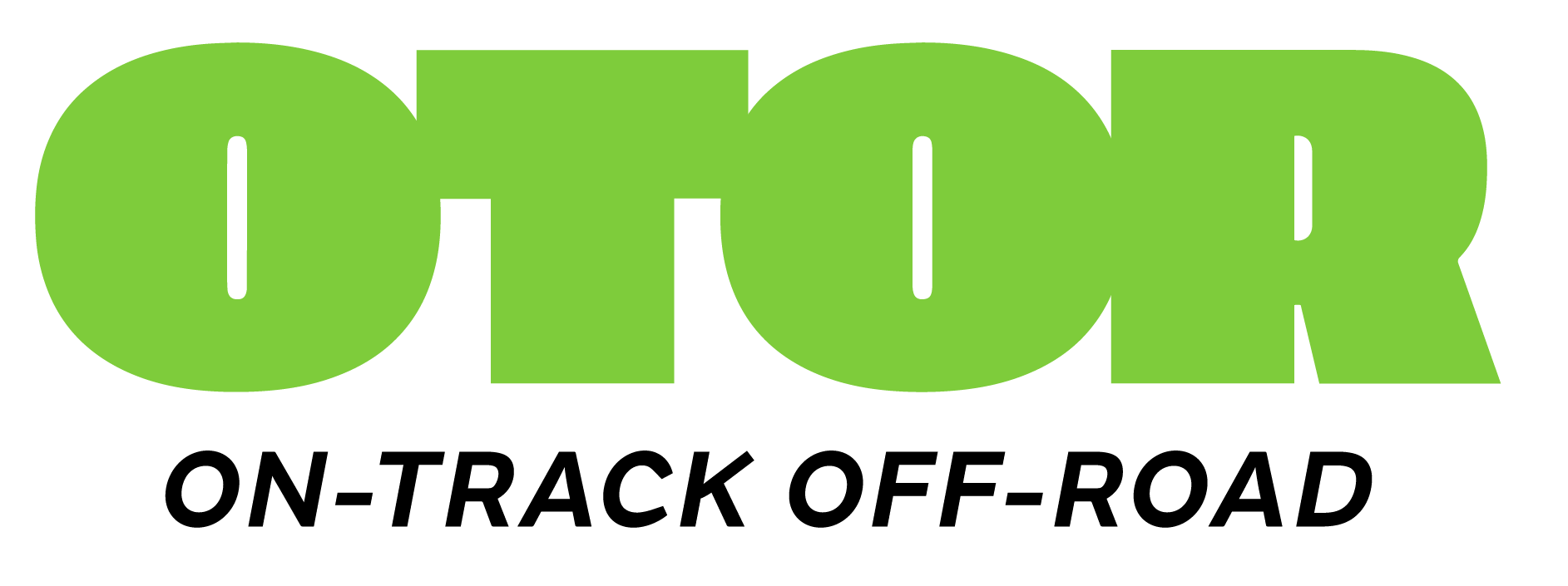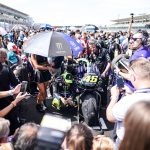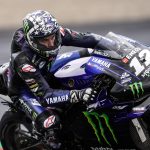Aside from the absorbing battle between Andrea Dovizioso, MotoGP’s wise old owl and young gun supreme Maverick Viñales, the scale of surprise on show ensured 2017’s floodlit curtain raiser in Qatar will live long in the memory.
Whether Valentino Rossi’s inclusion in parc fermé after a shoddy winter of testing is worthy of wonder is open to debate, given the Italian’s propensity to shine come Sunday. However, Aleix Espargaro and Aprilia’s performance was, the Catalan equalling the Italian marque’s best result in the four-stroke era with a metronomic ride to sixth.
In fact, look all the way down the final top ten and there were names shocking some of the more established names. Scott Redding’s woes from the Malaysian and Australian tests seem but a distant memory now he has switched front forks and recovered some front feeling. Jack Miller continued to display heightened maturity in a fine run to eighth. Rookie Alex Rins mixed it with five-time champ Jorge Lorenzo and beat him on his class debut. Even Andrea Iannone – 15th in FP2 – put in a performance that was utterly in fitting with his self-labelled ‘maniacal’ nature.

Yet this all pales when cast alongside Johann Zarco’s explosive debut. Has there been a rookie performance that has caught so many off-guard in living memory? Yes, it ended in an unceremonious slide through the gravel, but all he did in those first six-and-a-bit laps was spectacular: the cut across Scott Redding and they jockeyed for turn one; the point and squirt under Marquez and Viñales on that exit; the consummate darting inside Iannone at turn six; and the temerity to begin gapping men that have been in this class for three years plus thereafter. It’s fair to assume Zarco wasn’t the only one feeling, as he later put it, “a pain in the heart” the moment it all ended.
I write this fully aware that in Zarco, we’re speaking of France’s most successful GP exponent, a double world champion, and a man who boasts of a win haul in the intermediate class that is just one shy of Marquez, two of Lorenzo. It’s also a given that he’s aboard Yamaha’s M1, widely accepted as the most ‘neutral’ of the grid’s bikes. So why the surprise? Well, James Toseland aside, I can’t recall Colin Edwards, Ben Spies, Cal Crutchlow or Pol Espargaro – all former world champions when joining Tech 3’s ranks – getting anywhere near the front in their first handful of races.
And there has always been a temptation to treat Zarco’s recent successes with a touch of suspicion. This largely stems from age. Unlike many of his contemporaries, the 26-year old hasn’t risen through the junior categories at a meteoric rate. Then there is his tendency to treat personal manager Laurent Fellon as some kind of minor deity, rapturously praising him as though he is the exalted leader of their very own two-man cult. And his temperament in the occasional big-pressure situation has been puzzling. Misano 2011 and Silverstone ’16 quickly come to mind.
But in Zarco, there is a rider adept at identifying his own weaknesses. Not just that. But in readily accepting them, he focuses largely on his strengths, working methodically on how to extrapolate them. On younger team-mate and fellow rookie Jonas Folger’s splendid testing performances, Zarco was a of mixture of sincerity and calm.
“I’m not the kind of guy to do it all at once,” he said at the Qatar test. “It makes me happy for him and also confident the bike and team know how to do it. When I see he’s third I say, ‘He’s better than you at adapting faster. Take your time.’ He has this talent to understand quicker. It’s maybe my weak point. [But] The bike is working. That makes me happy.” It is rare to hear even the top riders speak with this kind of measured candour.
Perhaps that partly comes from knowing his trump card is a formidable one. Smoothness, consistency, and above all, maintaining a killer edge all the way to the end. Briefed by training buddy Franco Morbidelli, Rossi had heard tales of Zarco’s formidable ability to keep the lap times coming and the wheels in line when grip is low and a tiring mind has an urge to wander. A shame then that we were robbed of seeing how he performed toward the conclusion of Sunday’s bow. Watch any of his 15 wins in Moto2 and you’ll see a rider as fast at the end of the race as he was at the start.
His canniness in selecting Michelin’s soft rear tyre for the reduced 20-lap in Qatar was also key. A four-lap dash on Friday evening with that rubber confirmed he could utilise it. Then he trusted in his own ability to maintain that pace.
But what really stood out was how Zarco attacked the occasion. Bear in mind, riders had two delays to contend with, as well as the contemplating of damp patches and kerbs in those 45 minutes the preceded the start. Rins admitted to feeling nerves, while Folger fluffed his start, ending lap one 18th. There wasn’t a hint of it in Zarco’s demeanour as he bustled toward turn one. “I had this experience in Mugello last year. I could keep calm. Even here, I was feeling good. The more we were waiting, the more I was feeling that it was time to take the opportunity and go,” he said.
Quite a start to life in MotoGP then. Early it may be, but perhaps it is time to re-assess what we thought Zarco could do in his rookie campaign. Fellon, also his personal coach, has set the bar high. “He was happy I did this,” Zarco revealed post race. “He said, ‘You still need to learn, train hard and you can dream about victories and podiums.’” Dreaming of the former may be a stretch, but bearing the Frenchman’s form over the past two years in mind, the latter now seems entirely possible.








